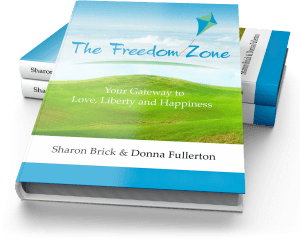Excerpt from a column by Cindy Ricardo, LMHC which appeared at SelfGrowth.com
Boundaries: The Importance of Valuing Yourself
By Cindy Ricardo, LMHC
Boundaries: The importance of choosing to value ourselves
“Your personal boundaries protect the inner core of your identity and your right to choices.”
-Gerard Manley Hopkins-
What are boundaries?
The easiest boundary to define is the property line. Most people have seen a no trespassing sign posted on private property at one time or another. This sign sends a clear message, “if you cross the line you will be prosecuted!” This type of boundary is easy to picture and understand because it’s tangible; you can actually see and touch the sign. On the other hand personal boundaries are harder to define because the lines are invisible; they can change and are unique to each individual.
Personal boundaries are limits or borders that define where you end and others begin. Your personal boundary is defined by the amount of physical and emotional space you allow between yourself and others. Personal boundaries also help you decide what types of communication, behavior and interaction you accept from others. The type of boundaries you set defines whether you have healthy or unhealthy relationships.
Different Types of Boundaries
The two main types of boundaries are physical and emotional.
Your physical boundaries need to be strong in order to protect you from harm. For example, if you have a deep wound and it goes untreated you expose yourself to infection which can result in serious, life threatening consequences; therefore protecting your boundaries is essential for optimal health.
Physical boundaries include your body, your sense of personal space, sexual orientation and privacy. Other physical boundaries involve clothes, shelter, safety, money, space, noise, etc.
One example of setting a physical boundary is when someone approaches you to discuss an issue and they get too close. Your immediate and automatic reaction will be to take a step back in order to reset your personal space. By doing this you send a non-verbal message to the person that when they stand so close you feel an invasion of your personal space. If the person continues to move closer your next step might be to verbally protect your boundary by telling him/her to stop crowding you. Again you are protecting your personal space by setting your boundary.
Additional examples of physical boundary invasions are:
- Standing too close to others and invading their personal space.
- Inappropriate touching such as making unwanted sexual advances.
- Looking through others personal files, letters, documents, etc.
- Not allowing others their personal space. An example would be barging into your boss’s office without knocking.
- Emotional and intellectual boundaries are just as important. They protect your sense of self-esteem, and your ability to separate your feelings from the feelings of others. When you have weak emotional boundaries it’s like getting caught in the midst of a hurricane with no protection. You expose yourself to being greatly affected by others feelings and can end up feeling bruised, wounded and battered.
They also include beliefs, behaviors, choices, relationships, responsibilities, and your ability to be intimate with others.
Examples of emotional and intellectual boundary invasions are:
- Taking responsibility for another’s feelings. Not knowing how to separate your feelings from your partners and allowing their moods to dictate your level of happiness, sadness, etc.
- Sacrificing your plans, dreams, and goals in order to please others.
- Not taking responsibility for your self and blaming others for your problems.
- Telling others what to think, feel, behave, etc.
Healthy vs. Unhealthy Boundaries
Setting boundaries is essential if we want to be both physically and emotionally healthy. Strong boundaries help maintain balance, self-respect and allow us to be interdependent in intimate relationships. A lack of boundaries is like leaving the door to your home wide open, anyone, including welcome and un-welcome guests can walk in without hesitation. Having rigid boundaries leads to loneliness and isolation and is akin to living in a fortress with no opening in sight. You can’t get out and no one can penetrate your walls. This leads to problems in intimacy in significant relationships. Unhealthy boundaries cause us deep emotional pain that can lead to dependency, depression,anxiety and physical illness.
The following checklist can give you a basic idea about the current state of your boundaries:
Healthy Boundaries allow us to:
- Be assertive by stating opinions, thoughts, feelings and needs in a respectful manner; ability to say yes or no, and are okay when others say no
- Separate needs, thoughts, feelings and desires from others
- Empower us to make healthy choices and take responsibility for oneself
- Have high self-esteem and self respect
- Share personal information gradually, in a mutually sharing/trusting relationship
- Protect physical and emotional space from invasion or intrusion
- Take care of our own needs
- Have an equal partnership where responsibility and power are shared
Unhealthy boundaries are characterized by:
- Inability to say no for fear of rejection or abandonment.
- A weak sense of your own identity; you live to serve others.
- Disempowered; others hold the power and make decisions for you consequentially you have no power or are responsible for your life
- Inability to protect your physical and emotional space from intrusion.
- Feeling responsible for other’s happiness and satisfaction to the point where you will sometimes rely on your relationship to create that for you.
See complete article here.
Cindy Ricardo is a Licensed Mental Health Counselor and an Imago Relationship Therapist. She runs a Private Practice located in Coral Springs, Florida and specializes in assisting individuals, and couples to develop and maintain loving and compassionate relationships. For more information please contact her at 954-793-6442 or visit her website at http://www.acaringcounselor.net


Views and Reviews